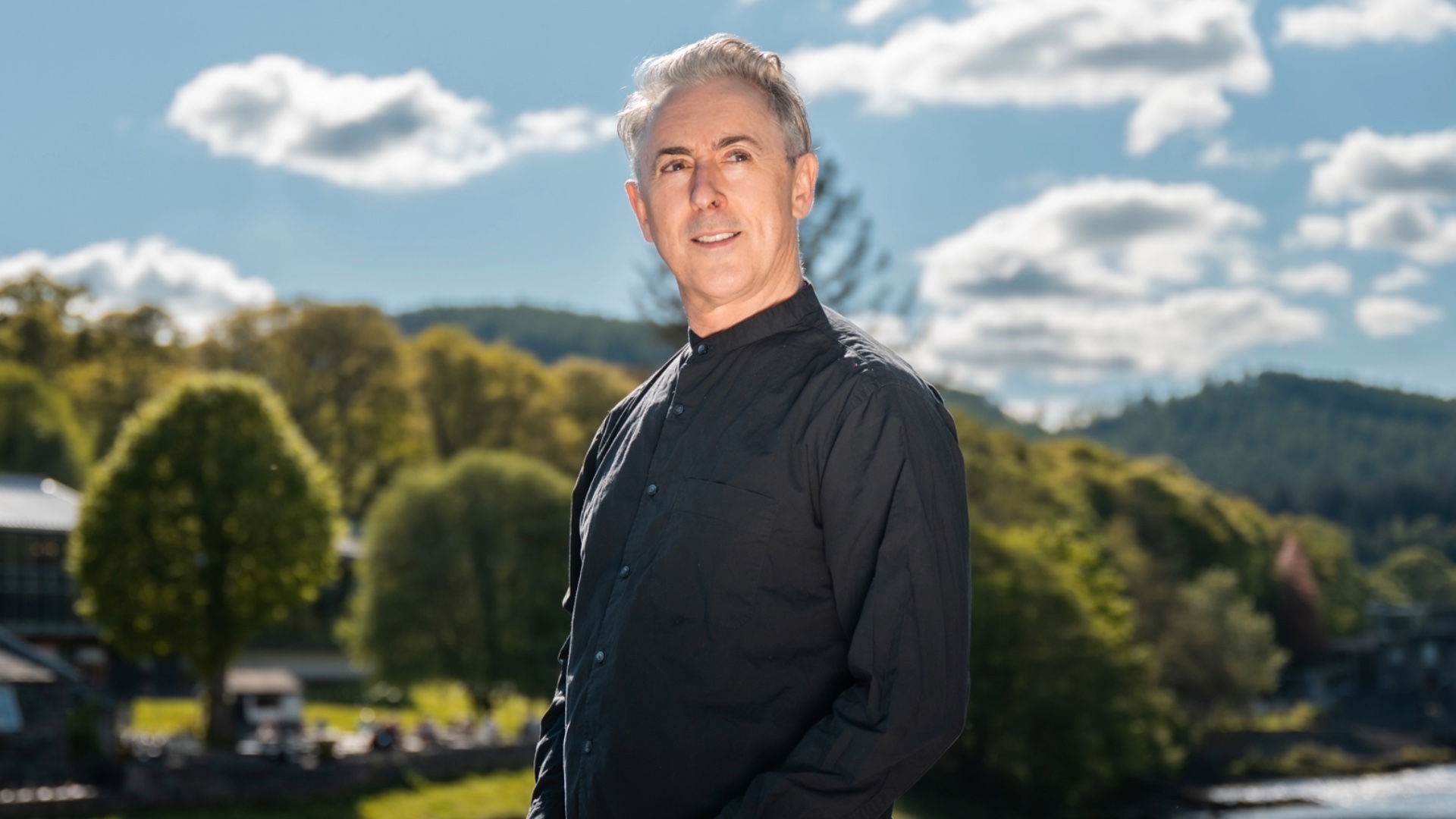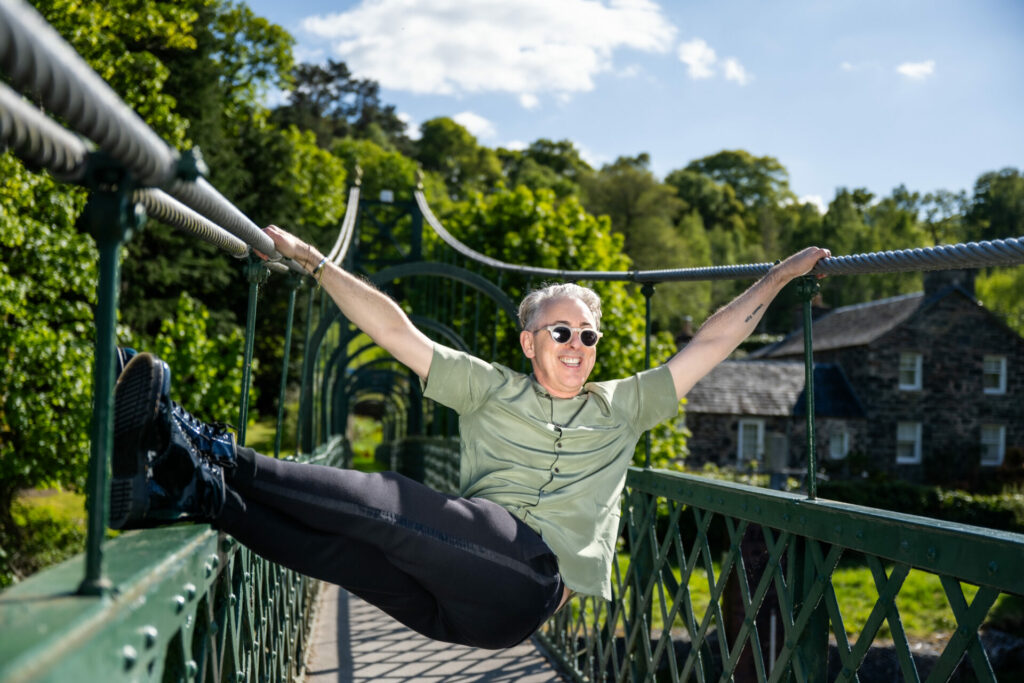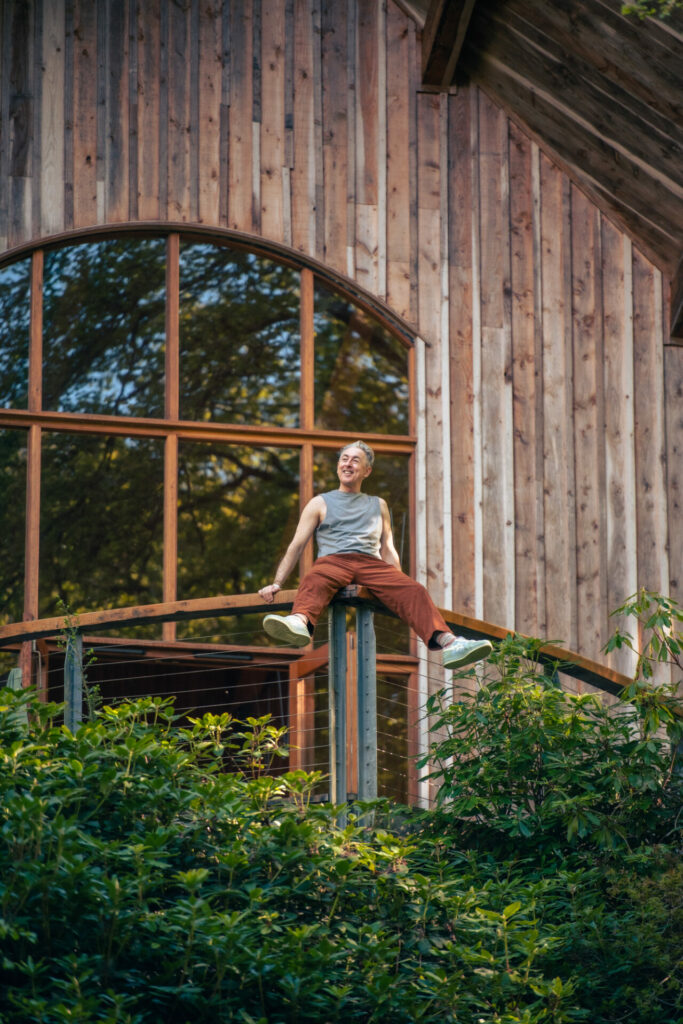Alan Cumming on launching Scotland’s first major LGBTQ+ festival: ‘Queer people have always punched above their weight’ (EXCLUSIVE)
Artistic director Cumming speaks to Attitude about why now was the time to launch the festival, its significance, and what audiences can expect
By Callum Wells

Pitlochry Festival Theatre is set to brighten up January with the launch of Out in the Hills, a brand-new festival celebrating LGBTQ+ creativity, performance, and conversation.
Running from 16–18 January 2026, the extravaganza will feature theatre, music, film, dance, and talks with literary icons, actors, and cultural figures.
Artistic director Alan Cumming speaks to Attitude about why now was the time to launch the festival, as well as its significance and what audiences can expect.
Why launch a major queer festival now? What’s the core message of Out in the Hills?
It’s about a celebration and about a time in our history when queer people, and especially trans people, are being persecuted and legislated against. I felt it was just such a good thing to remind everyone of the huge contribution that queer people have made to our culture, and to celebrate that, and to also bring a little bit of light and fun and joy into the Scottish winter.
Part of the reason for this huge backlash right now against trans people is something very noble that the Scottish Parliament tried to do – they passed a bill helping trans people make it easy to self-identify. That was quashed by the Westminster Parliament and taken to the courts. What was meant to help turned into the catalyst for a huge backlash. So I felt it was good to do something in Scotland celebrating those people and, hopefully, trying to redress the balance a little.

The festival is in January in the Highlands. Why bring it to Pitlochry at this time of year?
When I started as artistic director, I looked at the calendar and it’s a funny season. Most of our work happens from April to October. There’s a little gap after the summer season ends, then a Christmas show, but really January, February, March, and April are quiet. I just felt that in the winter, when it’s less about tourists, local people need something to do.
Queerness has always been about coming out of the darkness into the light and finding joy, even against conflict and struggle. January felt like the perfect time to bring something new that celebrates the way queer people have always punched above their weight in terms of contribution to culture and society.
You’ve mentioned that the festival aims to bring joy and light in the winter. Can you expand on that?
I just thought it was so interesting, obviously, it’s a place that relies on people coming in from outside. It’s a big tourist place, and I want to make it an international destination for theatre. But in the winter, it’s less about tourists, so the Scottish people need something to do. It feels like a really great time to bring joy and light into our lives. It just seemed a no-brainer to me.
You’re starring in Me and the Girls and hosting Graham Norton. How does your involvement reflect the festival’s spirit?
Me and the Girls is fascinating because it’s a short story by Noel Coward from 1962. At that time, he was vilified by the ‘angry young men’ and the kitchen sink drama crowd. His queerness was coded, but this story talks quite frankly about a man’s queerness and his working-class roots. It’s authentic to Coward’s background.
I’ve been circling this for about a decade. I did a workshop in New York, and then Neil Bartlett, who I’ve admired for decades, sent me this adaptation. Sometimes these things just happen, like the right moment. It feels like the perfect version for me, and we’re doing a rehearsed reading now with a view to a later season at Pitlochry.
With Graham, I realised part of my role as artistic director is to bring big names in to work and to show sides of them audiences don’t normally see. It also helps support smaller work that audiences might discover. I’m really excited to do it with him because last year at Winter Words, I did it in conversation with Kirsty Wark. It’s fascinating to interview someone so used to being the interviewer. Graham is a dear friend, brilliant, and his show is certainly my favourite. It’s rare to have a truly great chat, and he’s so good at making everyone involved feel part of it.
Why was it important to showcase queer voices across the spectrum?
I just think we punch above our weight. At this time in history, with trans people being legislated against and so much backlash, it felt important to put a flag in the sand and celebrate queer and trans people. To show the contributions they’ve made and turn the tide a little.
This festival is the first new thing I’m announcing as artistic director. It shows my spirit and sensibility. It’s for everyone – not just queer people. I hope everyone will come along. It’s indicative of how I want my time here to be: lots of new voices, challenging things, entertaining things, provocative things, and also a sprinkling of well-known faces to lure enough people in to make it financially viable.
How did Sir Ian McKellen come to be involved with Equinox?
It’s actually hilarious. I had been talking to Sean Mathias, who’s directing it, and he mentioned another play we’ll do at the Winter Words Festival. Because it straddled both festivals, we discussed where it should go. Sean then said, ‘Ian really wants to come. He heard about Hills and he really wants to do a rehearsed reading.’ I thought it was hilarious – I didn’t even have to ask him. What an honour. The reaction to the festival so far has been overwhelmingly positive, and everyone’s excited about being part of it.

If you had to pick one event you’re most excited about, what would it be?
Too many to choose from. I love that we’ve got Camp Trans Scotland, showing a film and exhibition about a safe space for trans people. I also love Juano Diaz performing parts of his memoir Slumboy with Dame Evelyn Glennie on percussion. And I’m excited about bringing Armistead Maupin and Jackie Kay together in conversation. For me, festivals like this are about connecting disparate people and creating something really special. It feels like a celebration in every sense.
Any other standout events audiences should know about?
There’s so much more – drop-in workshops, queer ceilidh, DJ sets, conversations with writers, politicians, and performers. There’s Match of the Gay, talking about LGBTQIA+ voices in football, and A Queer Look at History, uncovering hidden stories from the past. There’s something for everyone, from stand-up comedy to performances, music, and art. I just hope people come along, explore, and feel connected.
Out in the Hills promises a vibrant mix of performances, talks, and celebrations, offering audiences the chance to experience new voices, celebrate queer history and creativity, and enjoy three days of joy, light, and culture in the Scottish Highlands.
Tickets go on general sale 10 November, with priority bookings available from 27 October. For more information, visit pitlochryfestivaltheatre.com.
